- January 26, 2024
- By Heidi Scott ’09
Even on the roof of the world, climate change is melting the snow. The loss of a third of the ice of Himalayan mountains in the past 30 years has translated into water and food shortages and variable water quality in the villages below.
A University of Maryland team traveled there this month to see how communities there are tackling these insecurities and to apply its expertise in water sampling and analysis to inform solutions to citizens in Namobuddha Municipality.
The seven Global STEWARDS (STEM Training at the Nexus of Energy, WAter Reuse and FooD Systems) graduate fellows, led by the Maryland Institute for Applied Environmental Health’s Rianna Murray and Leena Malayil, are part of the Global FEWture Alliance to use systems thinking at the food-energy-water (FEW) nexus to inform sustainable climate solutions. It is supported by $3 million over three years from the Grand Challenges Grant Program, an unprecedented program at UMD awarding $30 million to 50 projects to address society’s most pressing issues.
[Rising to a Grand Challenge: Food, Energy and Water in a Changing Climate]
The 12-day Nepal trip integrated experiential learning, research to action and community support, such as planting kumquat trees at Sanskriti Farms and Research Centre under the eye of co-founder and director and Global FEWture co-PI Shree Krishna Dhital.
The farm “is an excellent example of participatory development, run locally by a local, to showcase ingenious farming practices and encourage villagers and farmers to partake in diversified and climate resilient farming,” said Global STEWARDS Fellow Amir Riyahi. Integrated with the on-farm water and food initiatives is biogas energy produced from human wastewater and cow manure.
The fellows also worked with Global FEWture co-PI Clive Lipchin to assess whether local schools would benefit from installing a solar-powered wastewater recycling system that generates safe irrigation water. The water would support the school’s integrated agriculture and animal husbandry programs that provide income for students.
They kept a detailed blog of each day’s activities, enriched with photos of fine food, striking views and the varied hues of Nepal’s religious, civic and natural cultures.
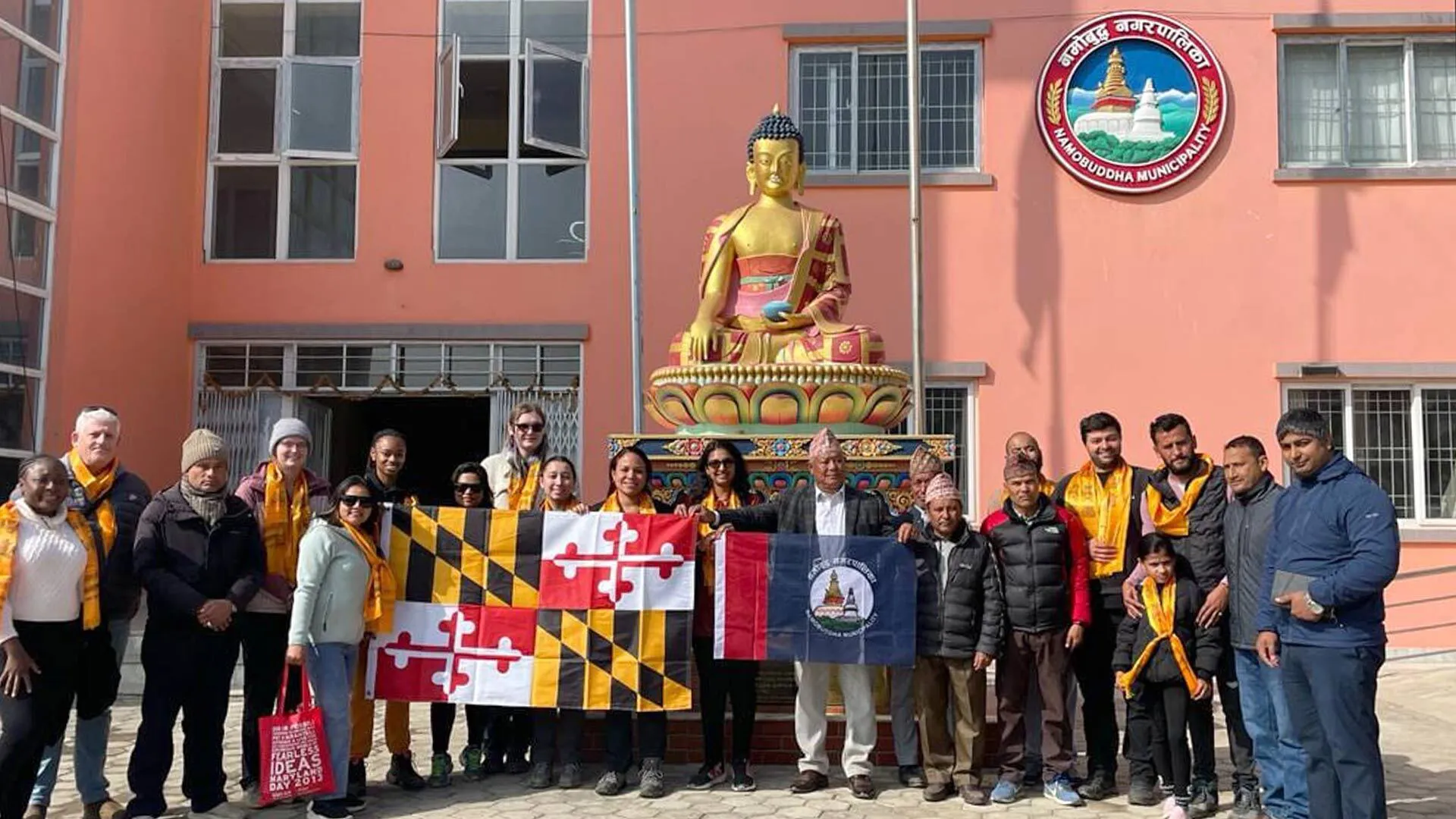
The UMD Global STEWARDS exchange “tokens of love” with Namobuddha Mayor Kunsang Lama and his staff outside of the Municipality offices. The mayor gifted yellow khatas (traditional Buddhist ceremonial scarves), and the UMD team presented Terrapin swag.
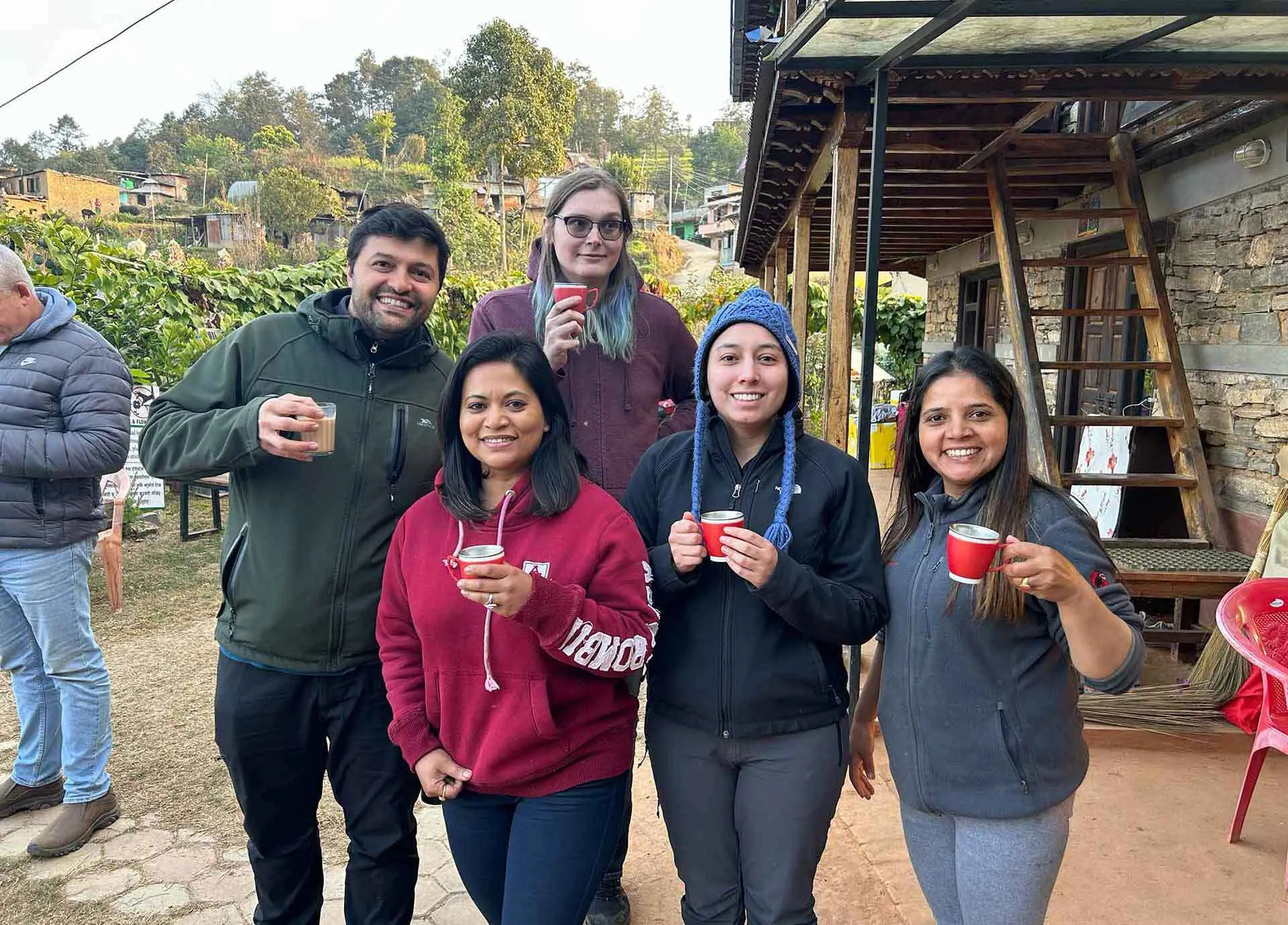
UMD Global STEWARDS Amir Riyahi, Camila A. Proano and Maia Karpovich along with local guides Neecal Shreshtha and Rupa Dhital enjoy lemongrass tea on a crisp morning at Sanskriti Farms and Research Centre.
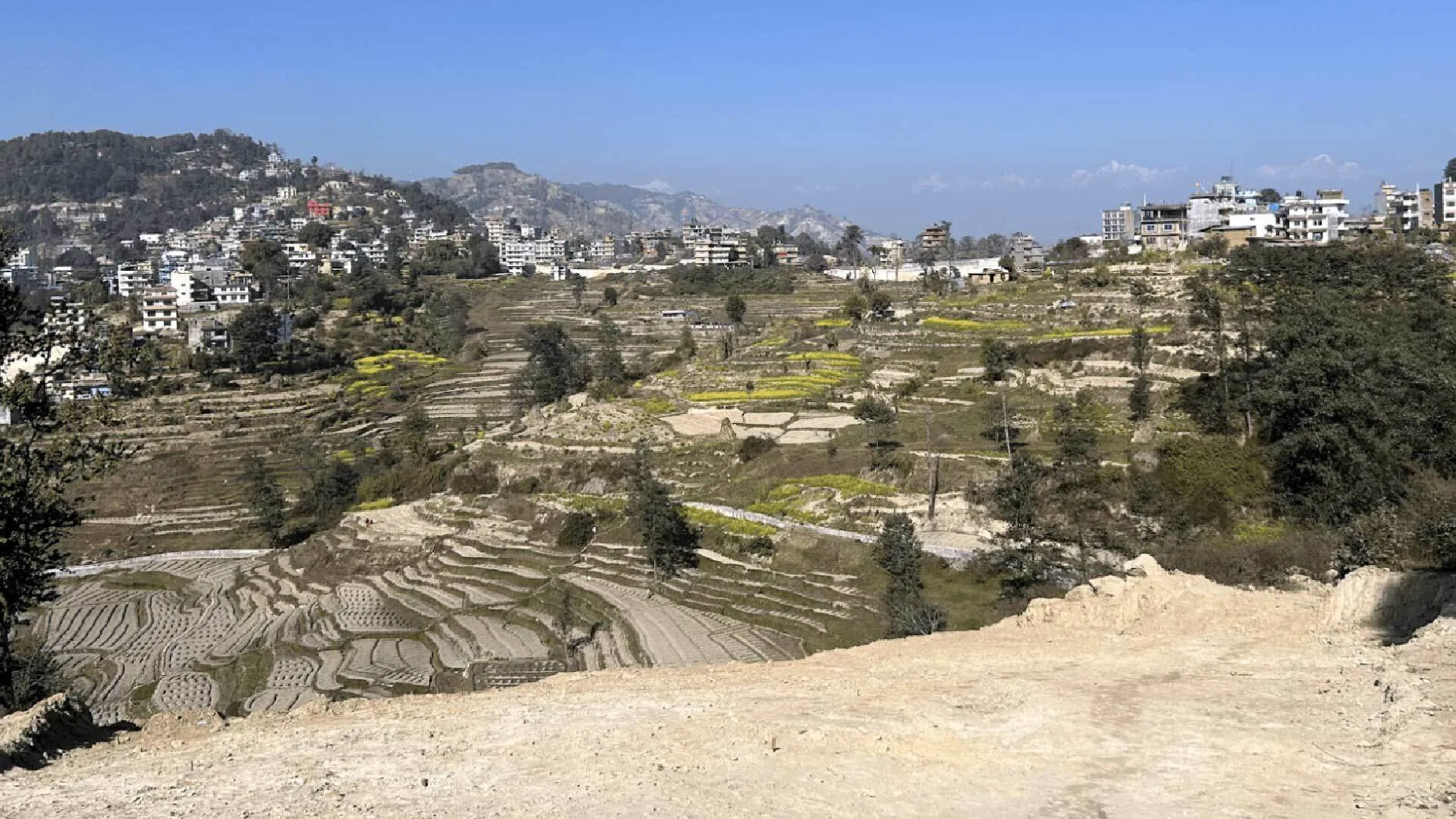
A valley and terraced farmland sits between Kathmandu University (KU) and Dhulikhel Hospital. The students enjoyed a walk through the valley and farmland to get to KU.
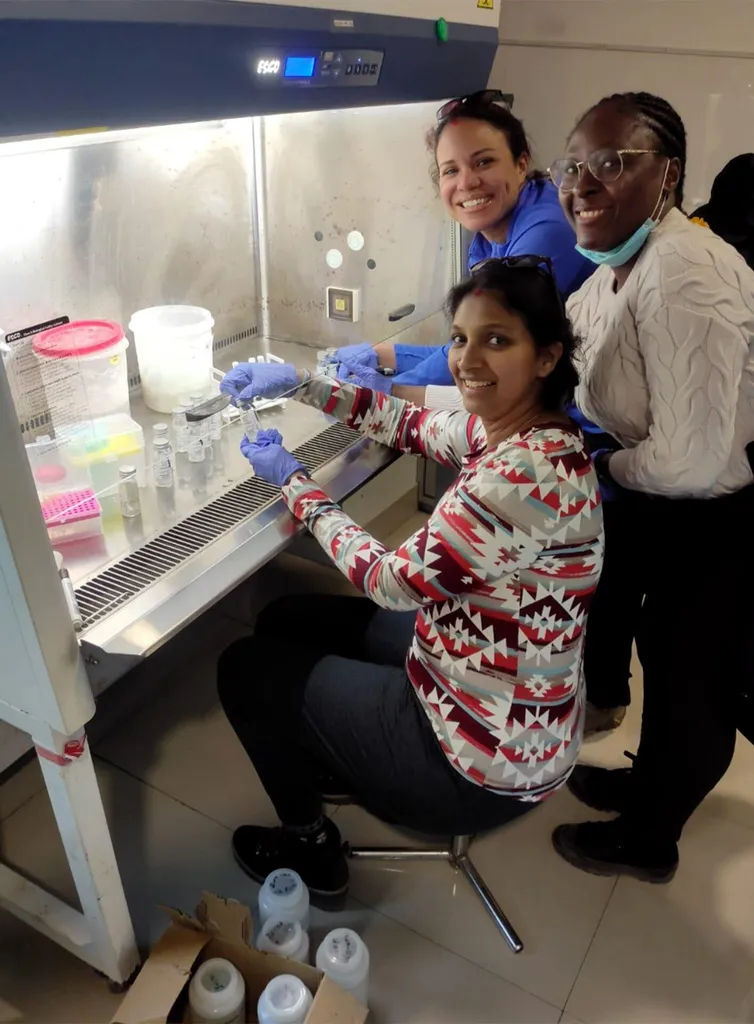
Rianna Murray and Leena Malayil along with Global STEWARDS fellow Taiwo Alawode process samples to assess water quality at the Dhulikhel Hospital Molecular Biology Laboratory.
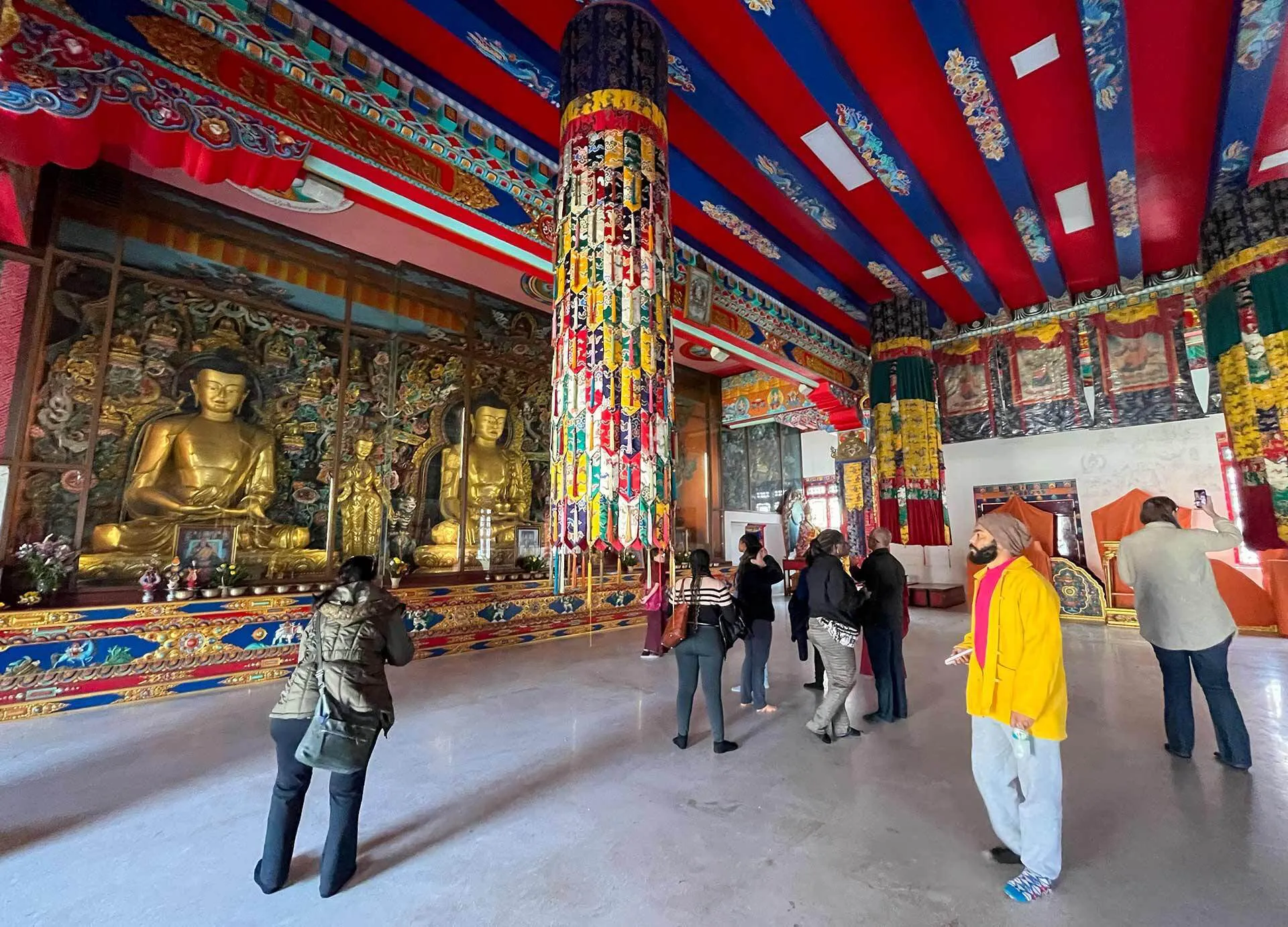
UMD Global STEWARDS had the unique opportunity to visit the Thrangu Tashi Choling Monastery and engage with Ven. Choke Lama Wangchuk Topden.
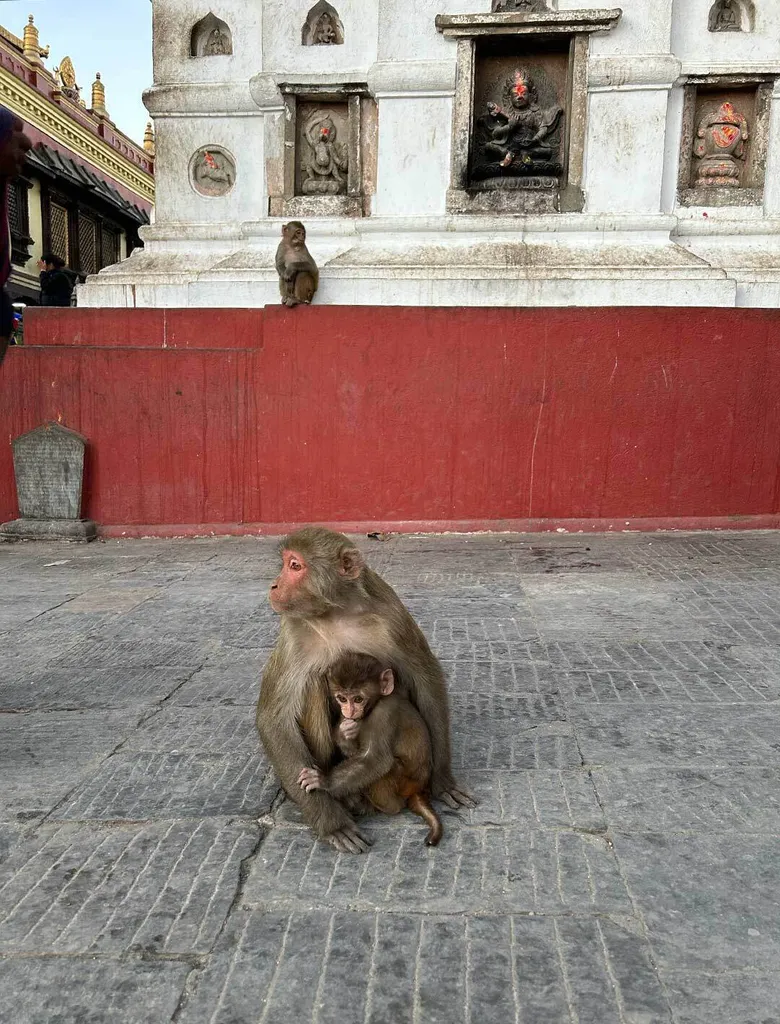
A Rhesus macaque mother cares for her infant at the famous Swayambhunath Stupa (aka monkey temple) in Kathmandu Valley, one of the oldest religious sites in Nepal.
Topics
ResearchUnits
School of Public Health